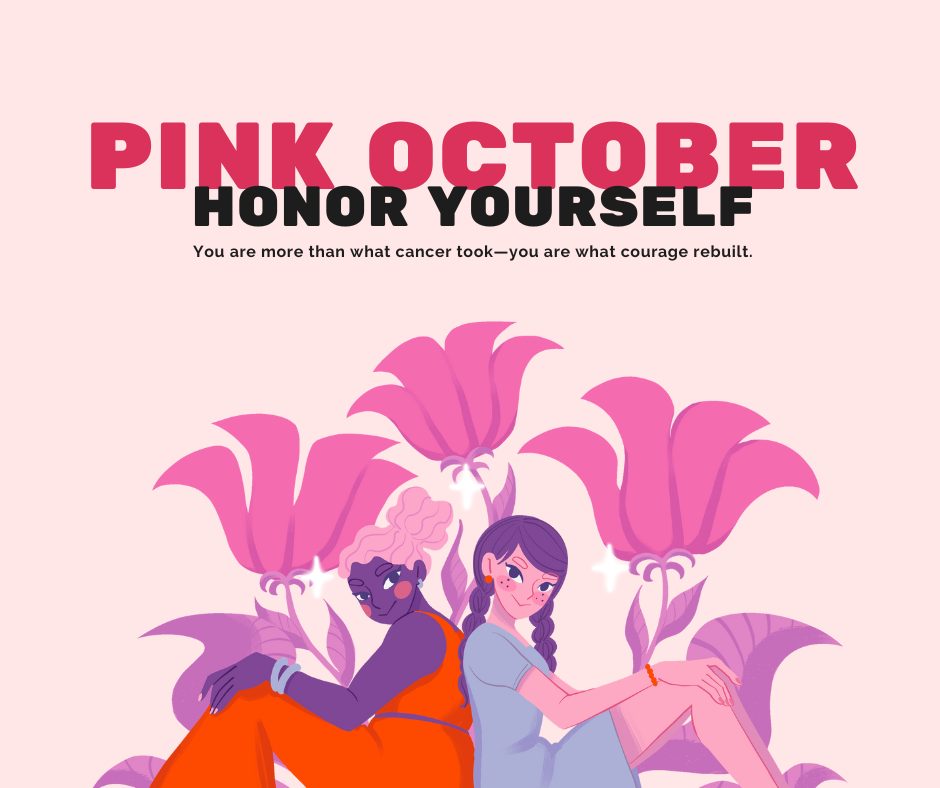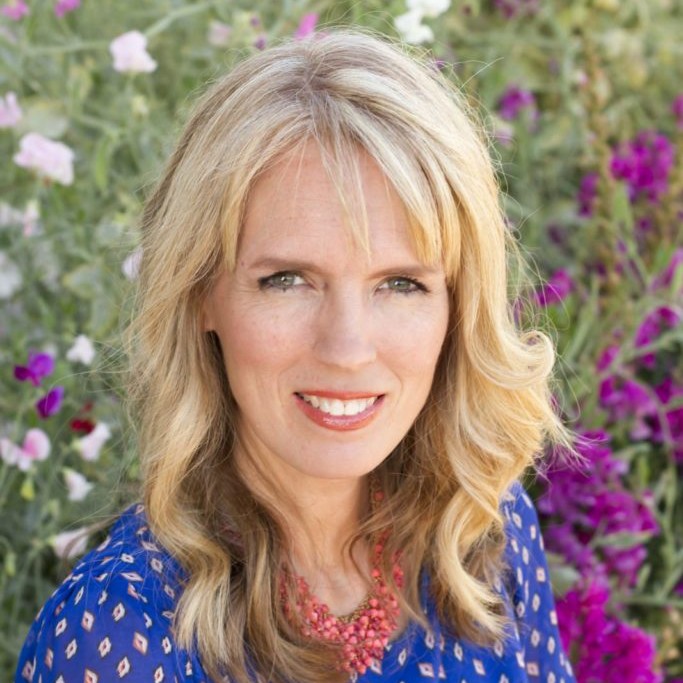Beyond Cancer Survival: How To Find Yourself Again

The Parts We Don’t Talk About
In honor of Breast Cancer Awareness Month, I want to share what I’ve learned from living through cancer myself and as a therapist sitting with others on their healing journey. Medical treatment focuses on survival—but real healing takes much more. When treatment ends, it can feel like the world expects you to move on, yet so many parts of your life are still catching up. Let’s talk about how cancer shapes the mind, body, and soul.
It Begins with a Diagnosis

In the early days of my own cancer journey I remember my biggest concern being the thought of losing my hair (even more than the fear of losing my life). It was as if I didn’t know who I would be without my hair. While this may sound ridiculous, the truth is that even before treatment starts, the mind begins preparing for loss: hair, breasts, energy, sense of self. And for most women the aftermath of diagnosis is an emotional storm of fear, disbelief, anger, worry about identity, fertility, and womanhood. My cancer was diagnosed when my son was in high school and my daughter had just given birth to my first grandchild and I was terrified that I might not be able to be there for them.
Treatment & Cancer Survival Mode
As we enter treatment (enduring surgeries, chemotherapy & radiation) our brains and bodies are focused primarily on survival. During this stage emotions often shut down to conserve energy for “just getting through it”.
Many cancer treatment patients struggle to maintain a sense of personal identity vs feeling as if the cancer itself has overshadowed who they really are. This can be complicated by the ways reproductive cancers affect femininity, sexuality and body image due to scars, losing breasts, hormone changes and looking and feeling unrecognizable.
No one told me (and I didn’t know to ask) that my mastectomy would leave me without sensation in the breast area. Or that losing my ovaries and uterus would cause weight gain as my body adapted to the loss of hormone producing organs. I was not prepared for how these changes affected my sexuality and self confidence. Many women experience shame, disconnection, or fear of being seen, and that healing involves gentleness and curiosity.
Numerous women I have worked with have expressed how the weight of balancing their fears and the exhaustion of constantly “being positive” takes its toll on both their own mental health and their relationships. They have shared how they often felt so depleted that they did not have anything left to give their important relationships.
These pressures often lead to emotional eating, isolation, or shifts in intimacy. It’s important to note however, that these coping behaviors are adaptive, not weakness or failures.
When the Real Healing Begins
Many have the misconceived notion that when the cancer treatment ends, the cancer struggle is over. However, in the quiet aftermath of cancer treatment the emotionally healing is just beginning. This is the space where so many suppressed emotions catch up and can be fully felt. This is where we finally have the energy to address our neglected relationships. Women have shared of this period:
“The hardest part for me wasn’t the surgery or the chemo—it was learning to trust my body again.”
“Sex after cancer feels like navigating a whole new landscape–its more connection now and less about preconceived ideas about performance.”
“Healing after cancer isn’t about returning to who I was—it’s about becoming someone who knows a strength I didn’t even know I had within me.”
Reclaiming Wholeness
Take time to explore anxiety about the future, fatigue, body discomfort, feeling different in your own skin.
Sexual recovery is a significant part of healing: give yourself compassion and time to redefine sexuality and intimacy.
Seek guidance and support as an individual or couple with communication, patience, humor, and understanding.
For me in the end, what I thought was going to be my biggest loss ended up being my biggest blessing. In losing my hair (and eyebrows and eyelashes and breasts, etc) I found ME. While I looked unrecognizable on the outside I discovered a courage and self-love I had never known before.
I would like to acknowledge the courage of every woman who keeps showing up for herself through the messy parts of recovery. There’s no such thing as “getting back to normal,” but there can be a new wholeness, grounded in self-acceptance.
If you are wanting/needing additional support for post-cancer emotional, relational, or sexual healing please don’t hesitate to reach out. You deserve to feel whole again.
